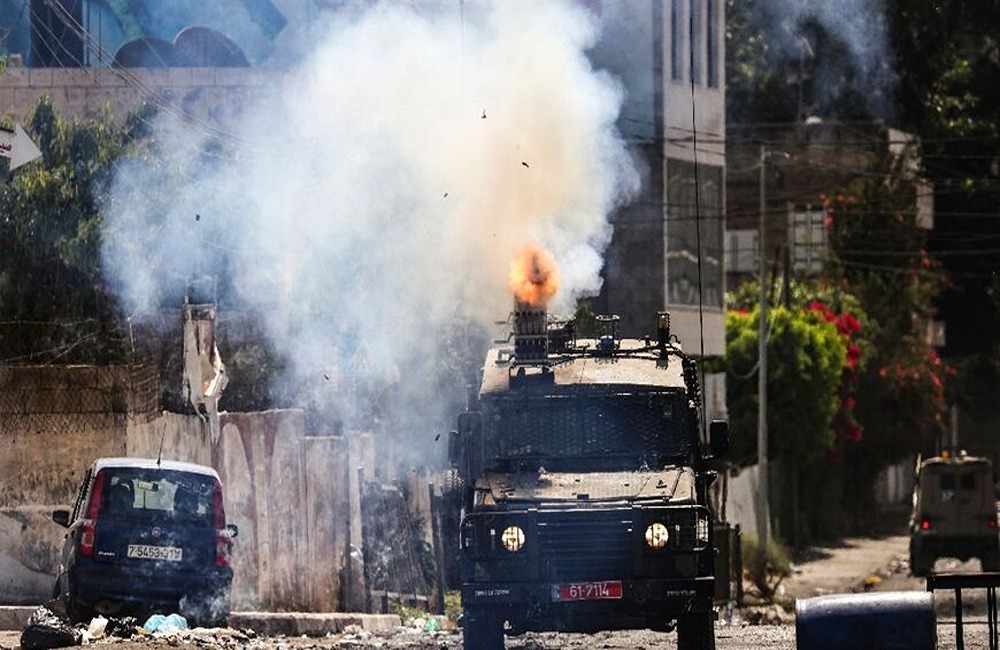In response to rocket fire from the coastal enclave, Israel launched airstrikes on the Gaza Strip on Wednesday. At the same time, the military started removing its personnel from Jenin in the occupied West Bank following a significant two-day operation there. The attack on the Jenin refugee camp, which was started early on Monday by Prime Minister Benjamin Netanyahu’s hard-right government, has claimed the lives of twelve Palestinians and one Israeli soldier. The raid, which involved hundreds of soldiers, drone strikes, and army bulldozers that tore up streets, was the largest military operation Israel has conducted in the West Bank in recent memory.
In another incident, a car ramming and stabbing attack occurred in Tel Aviv on Tuesday. The suspect was shot dead in the process. According to the Palestinian Health Ministry, 12 Palestinians have already died as a result of the massive Israeli army assault on the Jenin camp. Israeli soldiers were also killed by “live fire” during the operation, the army reported late on Tuesday. The army reported that it launched airstrikes on the Gaza Strip early on Wednesday after intercepting five rockets aimed at Israeli territory. According to a Palestinian security source, the attack in northern Gaza targeted a Hamas military facility but left no one hurt. A spokesman for the Israeli army stated that troops “have started withdrawing from Jenin camp” late on Tuesday.
The army claimed to have found active hideouts, weapons caches, and an explosives-storage shaft during the raid. According to Qasem Benighader, a nurse at a hospital morgue, “This is the worst raid in the last five years.” The army reported that its troops had destroyed six explosives production facilities, and three operational situation rooms, and seized a sizable number of weapons in Jenin.
The report stated that the weapons were found in vehicles, a mosque, covert pits, operational situation rooms, and hideouts. The increase was described as an “open war against the people of Jenin” by the Palestinian foreign ministry. Doctors Without Borders, a medical aid organization, also criticized Israeli forces for using tear gas inside Jenin’s Khalil Suleiman Hospital, calling it “unacceptable.” Mai al-Kaila, the Palestinian health minister, even claimed that Palestinians had been shot at by the army in the Jenin public hospital’s courtyard. The minister told reporters that the Ibn Sina Hospital had also been attacked. “Israel’s aggression reached its climax this afternoon when citizens were shot at directly in the courtyard of Jenin hospital wounding three, two of them seriously,” the minister added.
According to the Israeli army, there were reports on social media that soldiers had fired at a hospital. The statement continued, “Terrorist organisations have used civilian areas as a hideout,” adding that “security forces are not currently aware of the reports.” In the midst of a general strike, shops in Jenin were closed, leaving the nearly deserted streets littered with burned roadblocks and debris.
“The most dangerous is what happened inside the camp, where there is no electricity, no water, and no roads for those who need to go to the hospital,” Jenin Mayor Nidal Abu Saleh told AFP. Since the attack started, 3,000 people have left their homes in the refugee camp, according to Kamal Abu al-Roub, the deputy governor of Jenin. One of the people leaving the demolished camp, Imad Jabarin, said: “All facets of life have been destroyed, there is no electricity, no communications, and we are somewhat cut off from the outside world.” Attacks on Israelis and violence by Jewish settlers against Palestinians have both increased recently in the northern West Bank. Since early last year, the Israeli-Palestinian conflict has gotten worse, and under the Netanyahu administration, which includes allies on the extreme right, it has gotten worse still. As “an initial response to crimes against our people in the Jenin camp,” Hamas praised the “heroic” Tel Aviv attack.

















